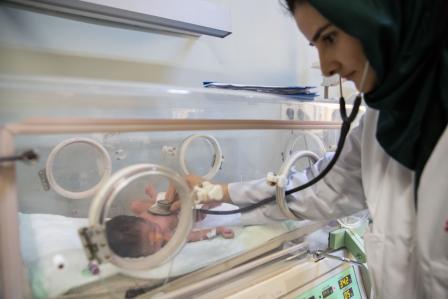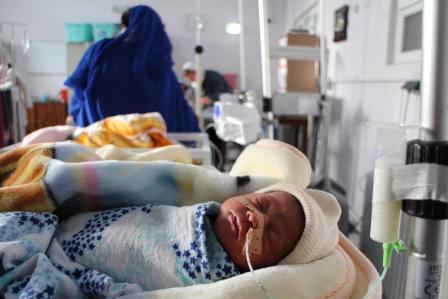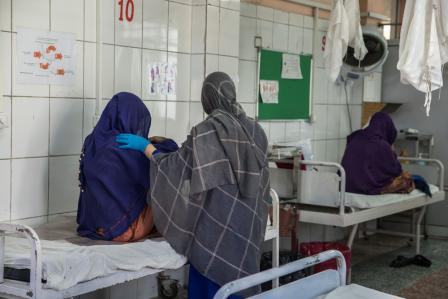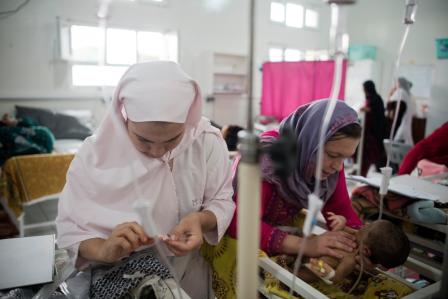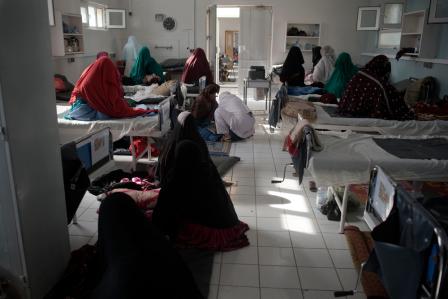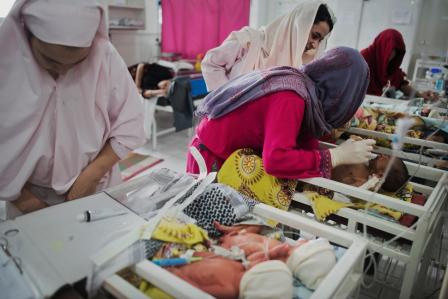Afghanistan: 'My gut feeling told me that ‘something is terribly wrong’
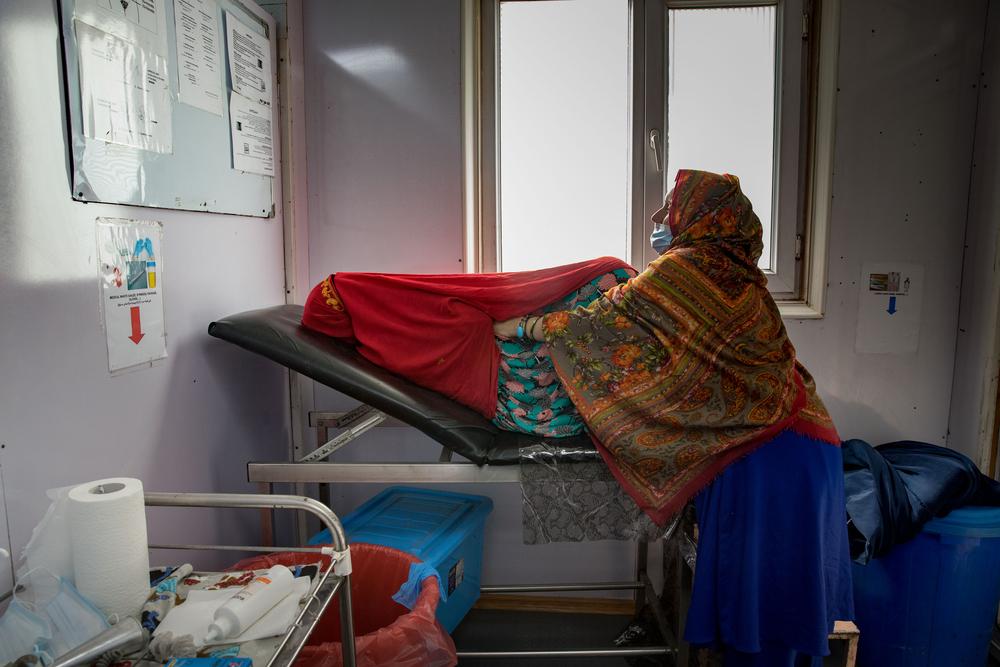
A Doctors Without Borders midwife cares for a pregnant woman in the inpatient department at the our Khost maternity hospital. Afghanistan, 2021. © Oriane Zerah
“The birth had been going on for a long time, but nothing had gone as it should. She had lost a lot of blood, the baby was dead and she had serious internal and external injuries to her reproductive organs. She must have been in terrible pain. My gut feeling told me that something was terribly wrong,” says Tori Husum.
When Husum received this patient in January, she had been working for Doctors Without Borders in Afghanistan for just over a month. The gynecologist, who in Norway works at Haukeland Hospital in Bergen, knew the complications in front of her were severe.
The first goal was to save the woman's life. The other goal was to treat the injuries in such a way that she could live without long-term suffering.
“We decided to do a c-section and take her to surgery due to symptoms indicating internal injuries. These injuries were so severe that we had to remove the uterus. After a long surgery, we also repaired the external damage, which fortunately was not as serious as first thought,” says Husum.
A meeting she won’t forget
The day after the surgery, Husum met the patient on the ward. When she talks about this meeting, she is still clearly moved.
I was fighting tears. She was so strong. I asked if she was in pain, and she said no and smiled. The interpreters helped me so I could tell her: ‘I'm so sorry for what you've experienced. I hope you'll make it.’ She said she was just happy to be here. She said they were poor and could not afford health care. And then she said something about her praying for us, and then I thought, we are the ones who should pray for you.Tori Husum, Gynecologist
Women die unnecessarily in childbirth
Now, more than a month after the incident, the woman has been discharged and is doing well.
"Her reaction to receiving help – health care that most people in countries like Norway take for granted – shows how much Doctors Without Borders' work is needed," Husum states.
Anesthesiologist Øyvind Thomassen, Husum's colleague both in Khost and at Haukeland, agrees.
“There is undoubtedly a need for a hospital that has specialist expertise in more complicated births. There are very few who provide this type of help and who do it for free,” says Thomassen.
That is almost five times as many as at Haukeland Hospital. Not all patients face such life-threatening complications as the one Tori described, but all benefit from access to free medical care.
In the delivery room, birth benches lie in a row many meters long. In busy times, it can look like a birth factory. But these are orderly conditions where everything is clean and tidy.
“Many people live in the countryside and have long journeys to the nearest hospital. There is little infrastructure, women have many children, and there is little follow-up during pregnancy,” says Husum.
“Everyone knows someone who was born here”
Despite these challenges, the vast majority of women who come to the hospital in Khost survive.
Not long ago, the two doctors and their Afghan colleagues saved three lives together: a mother and her twins.
“The way the twins lay in their mother's womb was completely incompatible with a normal birth. We had a c-section, and everything went brilliantly. There were two healthy children, and everything went well with mother,” says Husum.
“But if the woman had been at home in the village without any kind of maternity care, this would not have gone well,” she adds.
People describe the maternity hospital, which has existed since 2012, as a safe bubble in the local community.
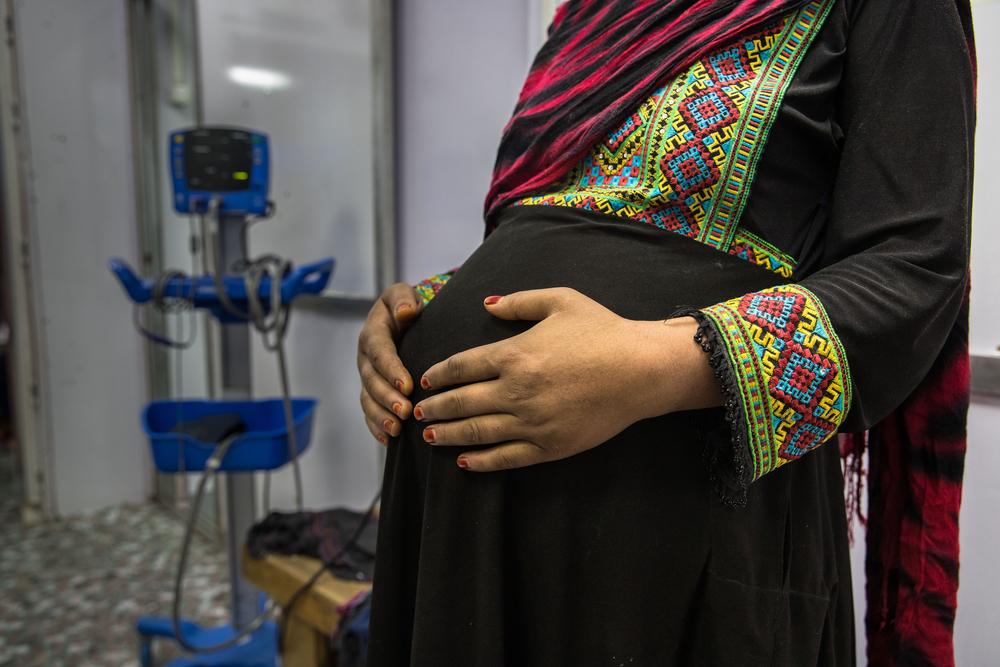
A pregnant woman in the inpatient department at the Doctors Without Borders Khost maternity hospital. Afghanistan, 2021. © Oriane Zerah
“Patients say it spontaneously when they come, that they feel safe here. They know that here they can get free treatment of good quality. Afghan staff also feel that they work in a place that makes a difference. It is the Afghan staff who carry on the work throughout the year, while international staff come and go,” says Husum.
People's relationship with the hospital helps to make it a safe place, Thomassen points out.
Whether they are members of the Taliban, the previous government or other groups, you can be sure that they have children or grandchildren who were born here. This is part of our security, providing free healthcare to anyone who needs it, though of course we also continually assess the and assure the safety of our teams.Øyvind Thomassen, Anesthesiologist
“When crisis hits, we stay”
Outside of the safety of this maternity hospital, multiple crises are raging. It is an extraordinary time in Afghanistan. Economic sanctions against the country's new government have created a huge shortage of money in the country. Millions of Afghans depend on emergency aid to survive. Many health services are closed. Health workers who stand ready to work have been without pay or the equipment needed to provide care.
In this situation, Doctors Without Borders is one of the exceptions. The organization has been able to continue its activities as normal.
“Doctors Without Borders is independent and does not receive money from governments. Therefore, we can act on the basis of our own assessments of medical needs, and we do this regardless of political, economic or other interests,” says Thomassen.
When the Taliban took power last year, many humanitarian organizations left the country for a time.
“But we stayed. The same thing that makes us feel safe, that we talk to and provide health care to all parties, allows us to continue. Every day we witness how this approach is saving lives,” says Øyvind.
